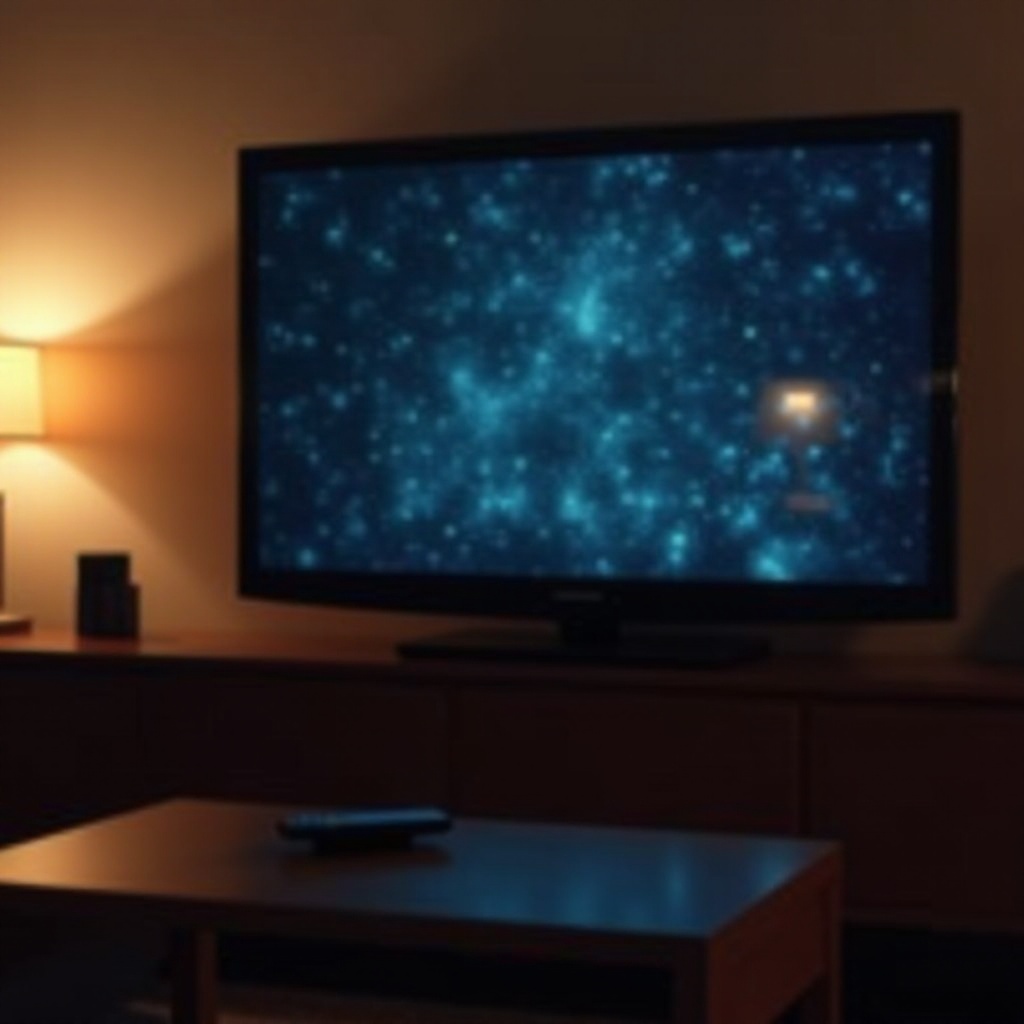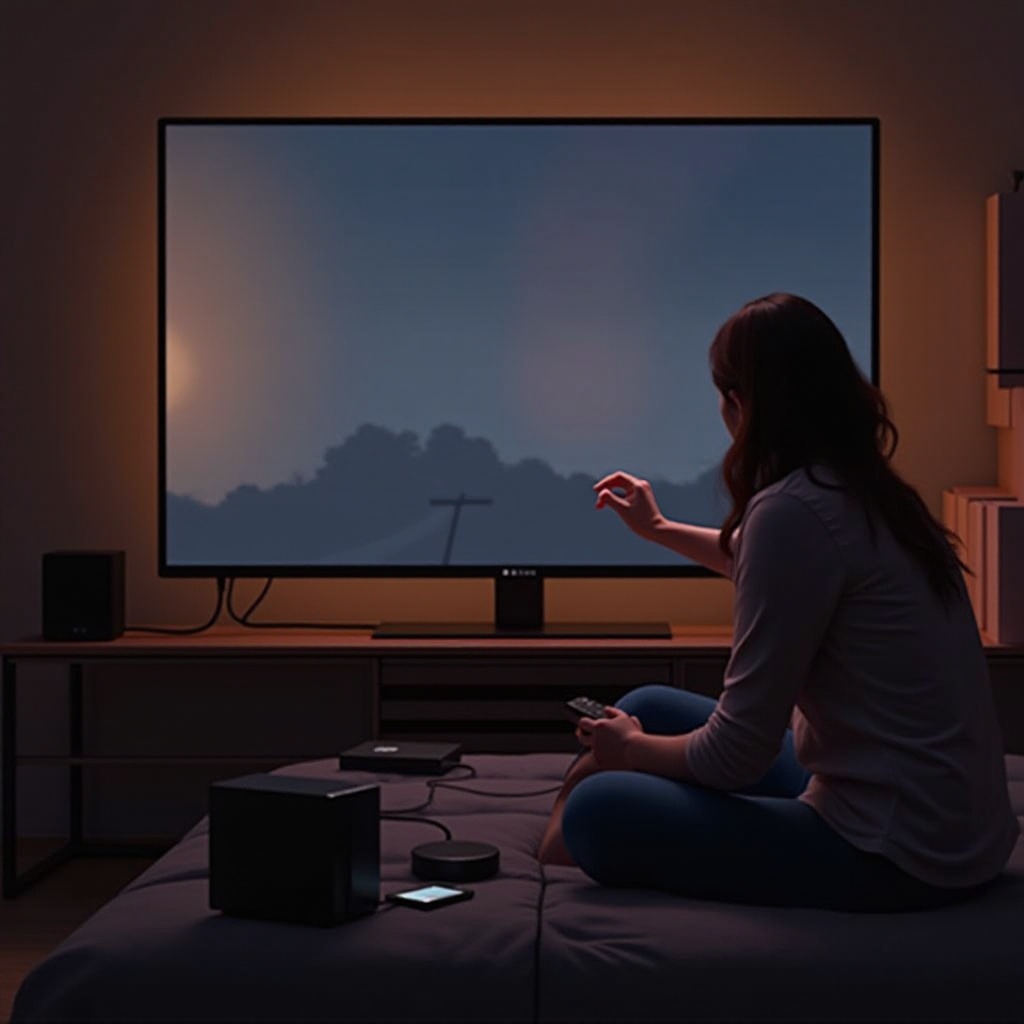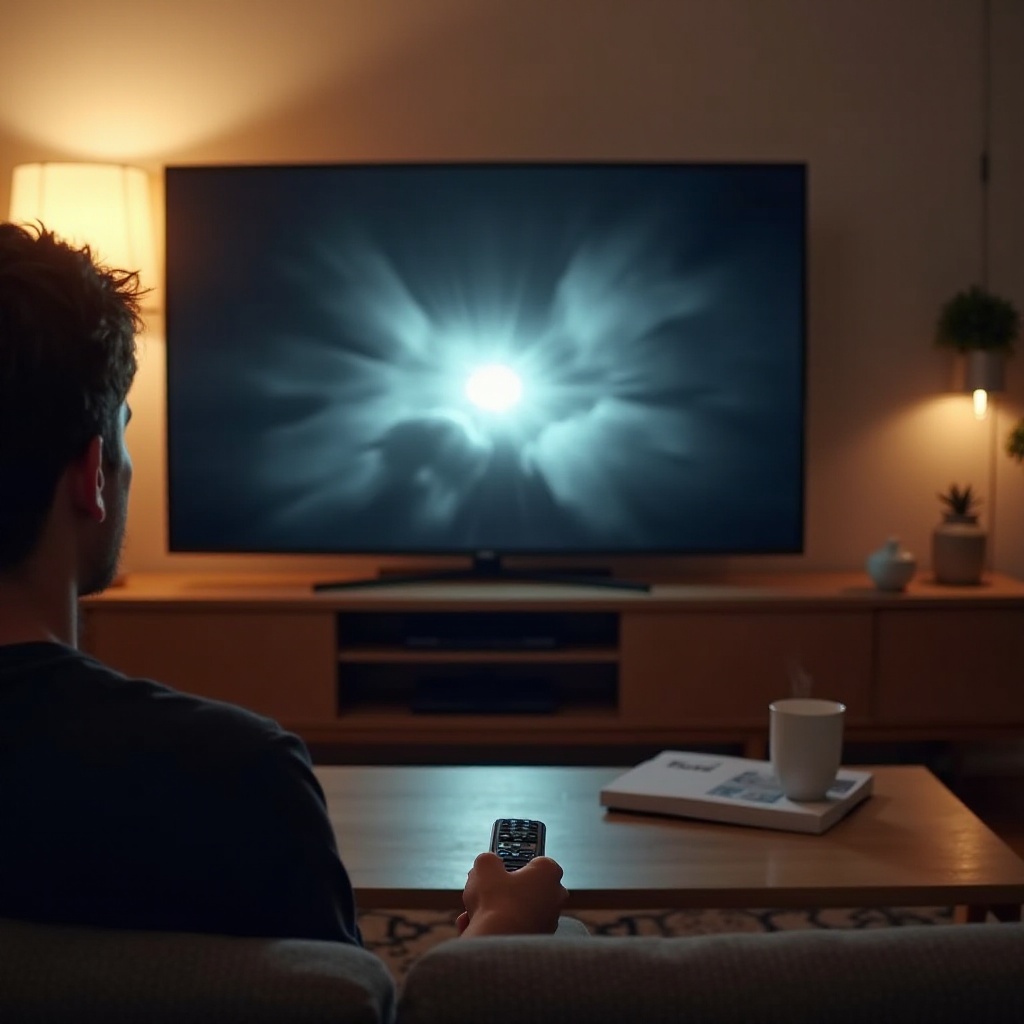Introduction
Is your TV turning off every few seconds, leaving you frustrated and confused? This common issue can disrupt your viewing experience and leave you scrambling for answers. Whether you’re in the middle of watching your favorite show or trying to catch up on the news, a TV that continuously shuts off can be quite aggravating. Several factors could be behind this; from power and connectivity problems to software glitches, there’s a lot to consider. Understanding these issues is the first step toward resolving them, allowing you to get back to enjoying your entertainment seamlessly.

Understanding the Issue
Before diving into solutions, it’s crucial to identify potential causes for this annoying problem. TVs are complex electronic devices reliant on a symphony of components working together. Varied issues can lead to a TV turning off unexpectedly, ranging from simple to complex. Common problems include electrical malfunction, overheating, device connectivity issues, and software bugs. By understanding possible causes, you can troubleshoot more effectively and hone in on the real issue. Investigating whether the issue is consistent with power loss, overheating, erratic changes due to external device interference, or software issues helps pinpoint the exact problem driving your TV’s misbehavior.
Power Supply and Electrical Problems
If your TV keeps turning off, the power supply or electrical connections may be suspect. Often, fluctuations or inadequate power can cause a TV to shut off randomly. Check the power cable for any signs of damage or wear. A loose or faulty power connection can disrupt the TV’s function, making it turn off sporadically. Moreover, electrical outlets can sometimes falter or supply inconsistent power, especially in older homes. If you have other electronics plugged into the same outlet, they might interfere with your TV’s power supply, causing it to switch off unexpectedly. Ensuring a solid connection and verifying the effectiveness of your electrical outlet can help resolve this problem.
Overheating and Ventilation
Overheating remains a prominent reason why TVs shut off abruptly. While in operation, TVs generate heat, and proper ventilation is needed to keep them functioning optimally. If your TV overheats, it’s programmed to shut off to prevent internal damage. Ensure that the ventilation in your entertainment area is adequate and the TV isn’t enclosed in a tight space where warm air can’t escape. Check for dust accumulation around vents, which can obstruct airflow and exacerbate heating issues. Placing your TV in a well-aerated area helps maintain consistent airflow and prevents unnecessary powering off stemming from overheating.
Software and Firmware Concerns
Software glitches and outdated firmware can result in unexpected TV behavior, including frequent turning off. Many modern TVs run on complex software; bugs can surface if the software isn’t regularly updated. Manufacturers roll out firmware updates that improve performance and fix potential glitches. Check if a pending firmware update is available for your TV and install it accordingly. Sometimes, restoring the TV to factory settings can resolve software-related issues. Be mindful of keeping your TV software up-to-date, as this often resolves erratic operating issues and keeps your device running smoothly without unnecessary interruptions.
External Devices and Connectivity
A TV that switches off every few seconds might be reacting to external device interference. Devices like gaming consoles, soundbars, or DVD players might send erratic signals that suddenly turn the TV off. Assess whether this issue occurs when specific devices are connected and troubleshoot accordingly. Test by disconnecting all external devices and checking if the problem persists. While external connectivity often enhances the viewing experience, it can sometimes interact negatively with the TV’s operational stability. Ensuring that all connected devices function properly can mitigate their impact on your TV’s performance.

Steps for Effective Troubleshooting
Arming yourself with knowledge about these potential issues sets the stage for effective troubleshooting. Try the following steps to ensure each component works properly:
-
Check Power Supply: Inspect cables and connections to ensure they are secure and undamaged.
-
Monitor Temperature: Ensure your TV has proper ventilation and clear any dust accumulation.
-
Update Software: Verify that the TV’s firmware is current and install any updates.
-
Inspect External Devices: Disconnect any external gadgets to see if the issue persists.
By systematically following these steps, you determine whether each component functions as expected and ensure potential issues are addressed methodically.

Conclusion
A TV turning off every few seconds can be a vexing ordeal, but it’s often fixable once you identify the root cause. Whether the problem derives from power supply issues, overheating, software glitches, or interference from external devices, taking methodical steps can lead to a resolution. By understanding these potential causes and implementing recommended troubleshooting methods, you can restore your TV to serve its purpose – uninterrupted entertainment.
Frequently Asked Questions
What should I do if my TV still turns off after troubleshooting?
If the problem persists after troubleshooting, consult the manufacturer or seek professional assistance. Continuing issues may be due to internal hardware faults that require expert evaluation.
Can a faulty remote control cause the TV to turn off suddenly?
Yes, a faulty remote can send erroneous signals leading to unexpected TV behavior. Remove batteries or replace the remote to see if this resolves the shutdown.
How often should I update my TV’s firmware to prevent issues?
Regular updates maintain optimal functionality. Check for firmware updates every few months or as notifications appear, ensuring seamless performance and minimizing glitches.